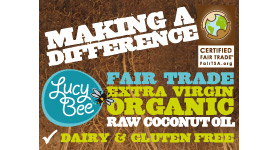|
|
|
Prebiotics are non-digestible food ingredients, such as fructooligosaccharides, that provide fuel for probiotics to thrive on. Since pre- and probiotics work synergistically, together they are referred to as synbiotics. Researchers at the Childrens' Hospital in Amsterdam investigated the effect of a formula supplemented with synbiotics on 90 infants with eczema to see if synbiotics could help prevent these children from developing asthma. For 12 weeks, the babies were either given a hydrolyzed whey formula with the probiotic Bifidobacterium brevis and the prebiotics GOS (galactooligosaccharides) and FOS (fructooligosaccharides), or a placebo formula without the synbiotics. Seventy-five babies, average age 17 months, completed the 1-year follow-up evaluation. The prevalence of 'frequent wheezing' and 'wheezing and/or noisy breathing apart from colds' was significantly lower in the synbiotic than in the placebo group (13.9%vs 34.2%, absolute risk reduction). Significantly fewer children in the synbiotic than in the placebo group had started to use asthma medication. Total IgE levels did not differ between the two groups. No children in the synbiotic and five children (15.2%) in the placebo group developed elevated IgE levels against cats. Synbiotics prevent asthma-like symptoms in infants with atopic dermatitis Allergy February 2011, Volume 66, Issue 2, pages 170–177 The study was funded by Danone.
First Published in June 2010
|








